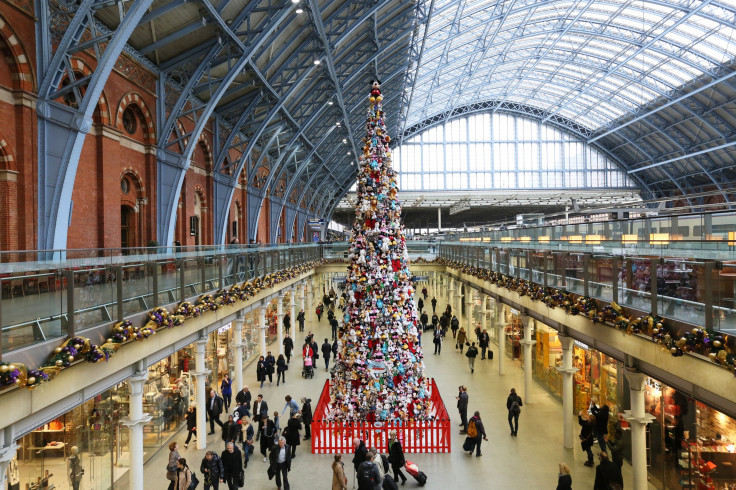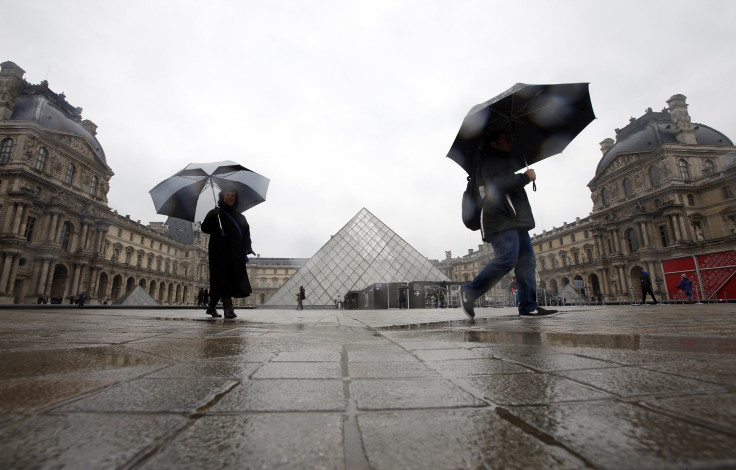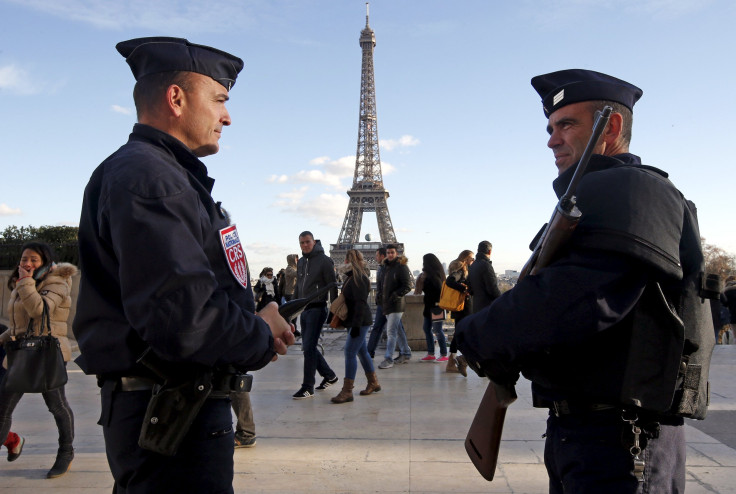Global Tourism Outlook 2015: Why France Is Better Off Than Tunisia In The Wake Of Terror Threats And Warnings

Around this time of year, Eric Fraudeau’s cooking school in Paris usually runs four or five classes per day. About six people, typically Americans and Canadians, fill out each session. They learn to bake melt-in-your-mouth pain au chocolate or stew tender boeuf bourguignon, all while sipping wine and sampling French cheeses. But he held only two classes on Wednesday, with four students in one class and just two in the other, after several attendees canceled.
“I’m very concerned about the holiday season,” Fraudeau said, estimating that 30 to 40 percent of reservations for Christmas and New Year’s had been canceled. “We are talking about thousands of Euros,” he said.
In the past month, a series of deadly terrorist attacks from Paris to Egypt’s Sinai Peninsula to Bamako, Mali has slammed those countries' tourism sectors as travelers, fearing that they will be next, cancel flights and reservations. But even with a blanket global travel alert issued Monday by the U.S. State Department, experts say that historically the impact of terror attacks on tourism are short-lived provided authorities take the proper steps in their aftermath.
“People’s memories are actually quite short about these incidents,” David Scowsill, president and CEO of the World Tourism & Travel Council, a British non-profit that works to promote the industry, said. Historically, countries take about six to nine months to recover from terrorist attacks, he said. The government and private sector have to restore public confidence and assure people that they’re safe, and then, once the attacks fade from the news cycle, “rapidly it goes back to normal,” he said, pointing to two deadly attacks that happened in Europe a decade ago.
In a series of coordinated attacks in Madrid in 2004, 10 bombs exploded on four different trains, killing 191 people and injuring more than 1,800. The following year, bombings in London on three underground trains and one on a bus killed 51 people. Yet in the aftermath of these attacks, “travel and tourism didn’t stop at all,” Scowsill said. “There was hardly a blip.”

Indeed, in the years after the attack, leisure tourism spending in Spain maintained the upward trajectory it had held in the years before, dropping only in 2008, when the global economic crisis began, according the WTTC data. For the United Kingdom, leisure tourism spending had been falling since 1998. It continued to do so after the attacks.
Other research has suggested that tourism actually increased because both countries invested so much in marketing and promoting the cities as safe destinations. In 2006, the London-based Association of Leading Visitor Attractions, found that while visits to certain touristic sites in London had dropped, other attractions had seen an increase in visitors since the attacks.
Still, a spate of deadly terrorist attacks over the past month – a Russian plane crash at the end of October over the Sinai Peninsula, a coordinated string of attacks at bars and restaurants in Paris Nov. 13, an attack on a luxury hotel in Bamako, Mali Friday – has shaken the confidence of authorities and global travelers alike.
The U.S. issued a worldwide travel alert for Americans Monday due to “possible risks of travel due to increased terrorist threats.” It pointed to the continued “likelihood” of terrorist attacks, by both members of the Islamic State group and those inspired but not affiliated with ISIS, as the group is also known.
In the week immediately after the attacks in Paris, flight bookings dropped 27 percent over the seven days in 2014, the travel information firm ForwardKeys found, Reuters reported. The firm said most flight cancelations had come primarily from people traveling for leisure, while travel reservations around Christmas were down 13 percent compared to a year ago.
Even if six to nine months is the standard for a country’s travel and tourism to recover from a terrorist attack, that success depends on how authorities behave in the aftermath as well as on the specifics of the attack, experts said.
In March and June, terrorists carried out two deadly attacks in at a museum and a hotel in Tunisia. Because they deliberately targeted tourists, the attacks would have a far greater impact on the country’s tourism sector than they would in France, experts predicted.
“To have two attacks in the same country within six months is a double blow,” Scowsill said. “The terrorists know that that country is very dependent on tourism, which is why they go after tourists. It’s going to take Tunisia some time to recover from that,” he said.
Similarly, Egypt would probably not rebound as quickly from the fallout of the Russian plane that crashed in October, for which an affiliate of the Islamic group claimed responsibility. “There’s been such a reaction,” Scowsill said, pointing to the number of airlines that canceled trips to and from Sharm el-Sheikh after the plane bombing.
Reputation also matters when it comes to restoring travelers’ and tourists’ confidence in countries that have come under attack from terrorists. France and other European countries, like Belgium, are contending with Islamic State fighters returning home. But Tunisia and Egypt are grappling with security concerns of a different magnitude, Tricia Bacon, an assistant professor at the School of Public Affairs at American University in Washington, D.C., who is an expert in counter-terrorism, said.
In Egypt's Sinai Province, the government is battling the group Wilayat Sinai, or Sinai Province, which has pledged allegiance to the Islamic State group in Iraq and Syria and launched deadly attacks on government outposts in the Sinai. As for Tunisia, some estimates state that Tunisians comprise the largest proportion of foreign fighters in Syria and Iraq, with the government stating that 400 of those fighters have returned home to Tunisia. France has exported foreign fighters to Iraq and Syria at an estimated rate of 18 per million people; Tunisia has lost such fighters at the much higher rate of 280 people per million.
"The recovery will be based on the amount of public confidence that the threat has been mitigated," Bacon said. "In Egypt, the scope [of the threat] is much larger, whereas in Paris it's about mitigating this network," she said.

At the same time, the attacks in Paris inspired a new kind of fear, Bacon said. Instead of tourists’ being concerned that they’ll be targeted simply for being tourists, now, the general population faces the specter of an attack at any given time. “The trick with Paris is that the soft targets selected were so random that it created a fear, a sense of ‘Who knows where could be struck?’” Bacon said. “They didn’t go after the Eiffel Tower,” she pointed out.
Heightening the sense of concern was the U.S. travel alert, Bacon said, who called the warning “a double-edged sword.” Even though it was aimed at protecting people, it could also exacerbate some of the damage on countries and businesses who depend on tourism, she pointed out.
“It’s partly just to say, ‘We did what we could,’” James Dobbins, a former diplomat and now a senior fellow at the RAND Corporation, a non-profit research organization, said of the travel warning. “It clearly has a very substantial short-term effect,” he said, “but that kind of caution is not normally sustained in the absence of further attacks.”
For Fraudeau, the hope is that the fallout from the terror attacks in Paris will be as short-lived as experts anticipate. The holidays are usually packed with reservations, but this year, he won’t be hiring the two extra chefs he usually does to help handle the extra business, and in the past two weeks, he's received only a fraction of the queries and reservations that he normally does.
Nevertheless, he tried to appear optimistic about next year. “I think that if there are no more attacks, no more violence, we should be fine in January,” he said.
© Copyright IBTimes 2024. All rights reserved.












